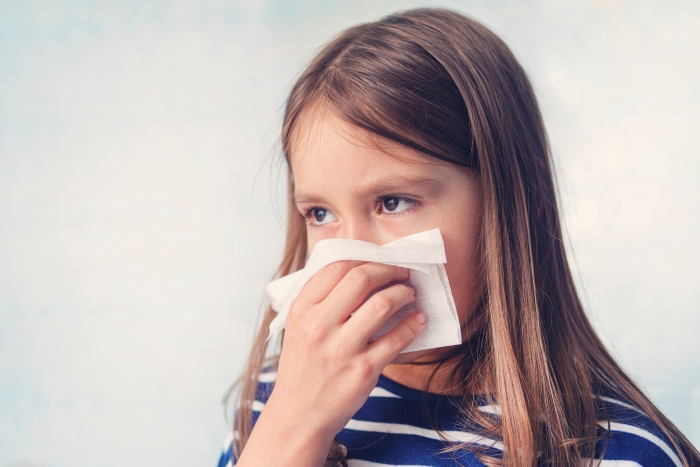Common Cold May Protect Against COVID-19 According to National Jewish Health Researchers
 DENVER - A new study led by researchers at National Jewish Health has found that recent infection with the common cold — often caused by rhinoviruses — may offer temporary protection against infection with SARS-CoV-2, the virus that causes COVID-19. The research provides fresh insight into why children are less likely than adults to develop symptoms and could point toward new ways to reduce the severity of respiratory illnesses.
DENVER - A new study led by researchers at National Jewish Health has found that recent infection with the common cold — often caused by rhinoviruses — may offer temporary protection against infection with SARS-CoV-2, the virus that causes COVID-19. The research provides fresh insight into why children are less likely than adults to develop symptoms and could point toward new ways to reduce the severity of respiratory illnesses.Published in the Journal of Infectious Diseases earlier this month, the study analyzed data from the nationwide Human Epidemiology and Response to SARS-CoV-2 (HEROS) study, which tracked more than 4,100 people in 1,394 households from May 2020 to February 2021.
Researchers found that people, particularly children who had a recent rhinovirus infection, were significantly less likely to become infected with SARS-CoV-2 in the following weeks. This effect is thought to be linked to the body’s antiviral defenses. Rhinoviruses trigger a strong interferon response in the airways, which can temporarily prime the immune system to fight off other viruses.
“Our findings suggest that the immune boost from a recent cold may give the body an early advantage in fighting SARS-CoV-2 before it has a chance to take hold,” said senior author of the study Max Seibold, PhD, a researcher and Director of the Regenerative Medicine and Genome Editing Program (REGEN) at National Jewish Health. “This may help explain why children, who tend to get more colds than adults, generally experience fewer and less severe COVID cases.”
Using thousands of self-collected nasal swabs, the team tested for both SARS-CoV-2 and other common respiratory viruses, including rhinovirus, in participants of all ages. They also analyzed airway gene expression to see how recent viral infections influenced the body’s antiviral defenses. Children were found to have higher baseline expression of interferon-related genes — proteins that act as the immune system’s first line of defense against viruses — compared to adults.
While this phenomenon, known as heterologous viral interference, has been observed with other respiratory viruses, this is the first prospective study to show it may also occur with SARS-CoV-2.
“This doesn’t mean people should intentionally try to catch a cold,” said Camille Moore, PhD and lead author of the study at National Jewish Health. “But understanding how one virus can affect the body’s response to another could help us develop new prevention strategies, especially for vulnerable populations.”
The research builds on earlier findings from the HEROS study showing that children are six times less likely than adults to develop symptomatic COVID. The new data highlights the role that both age-related immune differences and recent viral exposures may play in that protection.
National Jewish Health researchers conducted the study in collaboration with partners from 12 cities across the United States.
National Jewish Health is the leading respiratory hospital in the nation delivering excellence in multispecialty care and world class research. Founded in 1899 as a nonprofit hospital, National Jewish Health today is the only facility in the world dedicated exclusively to groundbreaking medical research and treatment of children and adults with respiratory, cardiac, immune and related disorders. Patients and families come to National Jewish Health from around the world to receive cutting-edge, comprehensive, coordinated care. To learn more, visit njhealth.org or the media resources page.
Media Resources
We have many faculty members, from bench scientists to clinicians, who can speak on almost any aspect of respiratory, immune, cardiac and gastrointestinal disease as well as lung cancer and basic immunology.
Media Contacts
Our team is available to arrange interviews, discuss events and story ideas.
- Jessica Berry
303.398.1082 office
303.807.9491 mobile
berryj@njhealth.org - Adam Dormuth
303.398.1002 office
970.222.5034 mobile
dormutha@njhealth.org
